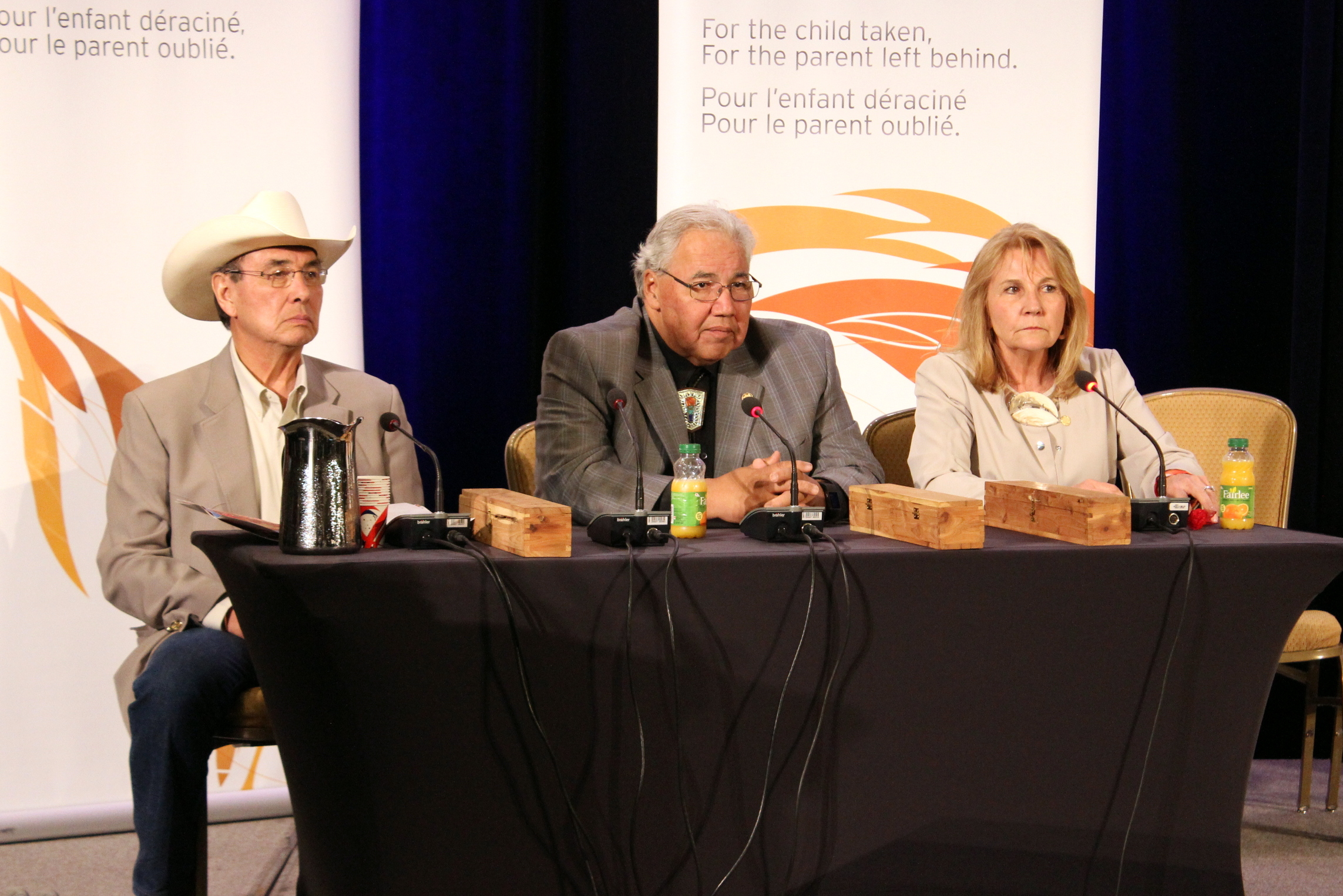The Truth and Reconciliation Commission of Canada (TRC) has released a summary of its final report into the history and legacy of Indian residential schools. The first paragraph in the Introduction describes Canada’s entire Aboriginal policy and its implementation as “cultural genocide.” The TRC defines that term as “the destruction of those structures and practices that allow the group to continue as a group.” This includes seizing lands, the forcible relocation of populations, restrictions upon movement, banning languages and spiritual practices, disrupting families and the removal of children. This is strong language but Chief Justice Beverley McLachlin and former Prime Minister Paul Martin have both used the same term in recent months.
Beyond words to action
Justice Murray Sinclair, the TRC chair, has made numerous speeches and provided many interviews over the past several weeks and he has said repeatedly that what Canada needs now is move beyond words and apologies to action and reparation.
A major TRC recommendation, which appears repeatedly throughout the report, calls on governments across Canada to adopt and implement the 2007 United Nations Declaration on the Rights of Indigenous Peoples. The TRC says that the UN declaration “is the framework for reconciliation at all levels and across all sectors of Canadian society.”
Recommendations to churches
The commissioners aim an entire section of their recommendations toward Canadian churches. They are called upon to fully support the UN declaration as the framework for reconciliation. Much of what the TRC asks churches to do deals with education. The commission wants them to develop educational strategies to ensure that people in the pews learn about their church’s role in colonization and in residential schools. Churches are also asked to engage further in community-based healing and reconciliation projects and to develop and sign a Covenant of Reconciliation that would identify principles for working collaboratively to advance reconciliation in Canadian society.
Another key recommendation is that churches repudiate the Doctrine of Discovery. The doctrine was issued by Pope Alexander VI in 1493, and it played a central role in the European conquest of the Americas. Its key premise was that European monarchies could treat Indigenous lands as “unoccupied” and therefore available to be “discovered,” despite that fact that the lands had been occupied and used since time immemorial. The doctrine persists in the law and the psychology of many countries, including Canada, the United States, Australia and New Zealand.
Finally, the TRC wants a formal apology from the Pope and they want it to be delivered in Canada. The commissioners are clearly not happy with what they perceive as foot dragging and obfuscation at the leadership level of the church regarding the residential schools issue. Catholic organizations ran 60 per cent of the 139 residential schools that existed over a period of 130 years.
Churches respond
Leaders representing the Anglican, United, Catholic, and Presbyterian churches were present at the release of the TRC report. Shortly after, Archbishop Fred Hiltz read a statement on behalf of those churches. Gerard Pettipas, Archbishop of Grouard-McLennan in Alberta and president of the Catholic Entities which are party to the Indian Residential Schools Settlement, also spoke on behalf of the dioceses and religious institutes involved in operating Indian residential schools.
Both archbishops praised the work of the TRC and the courage of the survivors. Archbishop Pettipas was largely non-committal about what the church might do next but said that he would take the report’s recommendations back to the bishops and the Canadian Religious Conference. Archbishop Hiltz made a general commitment to pursue around education and healing. He also mentioned that the churches involved support KAIROS, the ecumenical coalition that unites 11 Canadian churches and religious organizations in advocating for social justice.
KAIROS and solidarity
In the days prior to the TRC’s main event, KAIROS organized a complementary gathering called Time for Reconciliation. About 320 Indigenous and non-Indigenous people, including residential school survivors, participated in the two-and-a-half day session of sharing stories and workshops on the themes of reconciliation, decolonization and honouring Indigenous rights. The first evening’s events were opened by Indigenous drummers and singers and elders participated throughout in the plenaries and workshops.
The continuing relationship between KAIROS and Indigenous groups was also apparent in close cooperation in a walk for reconciliation in Ottawa-Gatineau that drew more than 5,000 people on Sunday, May 31. Church people, their banners and signs were prominent in the procession.
KAIROS and its predecessor organizations have been working with Indigenous groups ever since an ecumenical coalition called Project North was founded in 1975. The churches were responding to Indigenous leaders who asked that they do more than pass resolutions and issue statements. The work focused on the recognition of treaty and other rights, a just settlement of land claims, and having Indigenous rights enshrined in the Canadian constitution. KAIROS has suffered financial cutbacks from member churches and experienced other setbacks in the past few decades but the solidarity work has always continued.
A second chance
Ironically, the very churches who were so deeply implicated in the cruel 130 year history of residential schools are now poised, should they choose, to be crucial allies with Indigenous people. Church people are well placed to convince their own members, as well as other Canadians and their governments, to do justice in their time.




